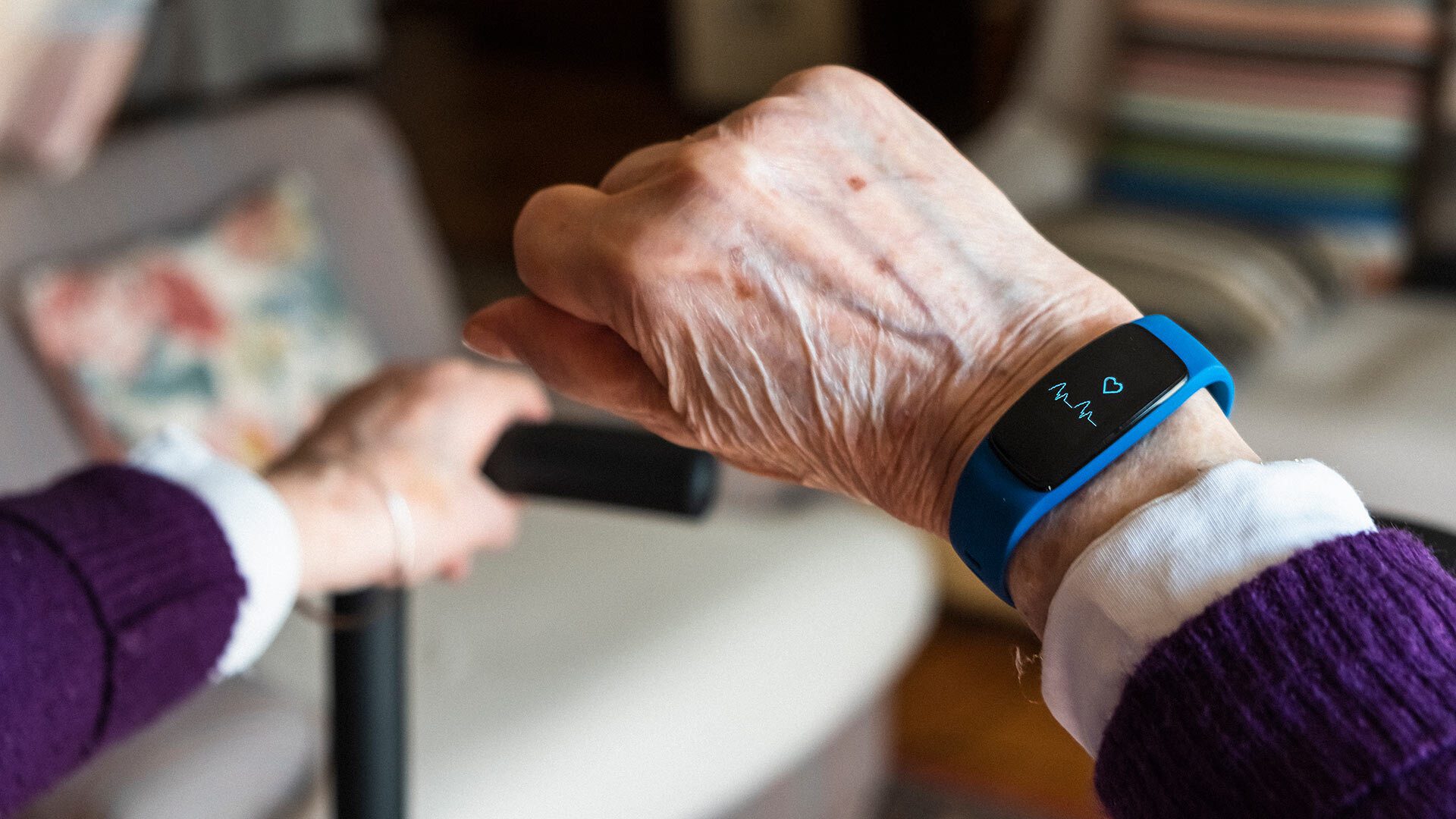- December 01, 2020
- By Aadit Tambe M. Jour ’22
Remembering to pick up their prescriptions and take the medication. Keeping up with loved ones. Developing meaningful hobbies.
These are activities millions of elderly Americans—and particularly those diagnosed with cognitive impairments—deal with daily. Now, a University of Maryland researcher is exploring whether smart devices and innovative uses of information technology could help them handle such challenges—and more broadly, be tools to help seniors age independently, remain in their own homes or fulfill other goals.
Behind all the technology, the key aspect of the work of Amanda Lazar, an assistant professor in the College of Information Studies, is that instead of a top-down approach—where researchers decide what’s needed—she’s partnering with study participants. Together, they’re creating solutions while countering widespread ageist attitudes about the capabilities of older people.
“There are prevalent attitudes in society towards aging,” she said. “For example, ageism is super prevalent where we assume older people are less engaged, have less to offer. So, research can end up focusing on a narrow set of directions instead of realizing how much older adults (have to offer).”
Part of Lazar’s work focuses on the use of popular voice-intelligent assistants such as Google Home or Amazon Alexa. Voice assistants are generally designed by young people, who may try to determine what older people might need but generally work on user interfaces and systems from their own perspectives.
One of Lazar’s projects, led by Ph.D. student Alisha Pradhan, focuses on working with older people to identify what they want from voice assistants, studying how they use them and involving them in new designs. One finding, Lazar said, was some older adults are less comfortable saying, the highly familiar, “Hey, Google” to the device, as they associate the term with younger people.
“It’s little things like that—the keyword even—that may not quite match the needs of older people,” she said.
Another finding of the study, supported by a 2018 National Science Foundation grant, was that older people were excited about the “reminders” feature of voice assistants. Their use of it, however, declined as time went on. They thought voice assistants weren’t reliable, given simple problems such as power or internet outages.
“This is a really interesting thing because it's not that they're not using the technology because they don't know how to use it,” Lazar said. “It's because they don't trust it.”
As part of a larger project on connecting different home objects to voice assistant systems the team is creating a network of sensors to connect a physical calendar to a voice assistant. This way, people can write on the physical calendar, and the information would then be sent to the voice assistant, so the system would trigger a reminder before the given date or time. The voice assistant would serve as a backup for a written calendar, rather than the primary means of keeping a schedule.
Lazar’s work also looks into helping design environments that support the autonomy of people with dementia, using information technology.
Under her supervision, Emma Dixon, a Ph.D. candidate in information studies, is studying how individuals can navigate their lives—in the physical world and online—with the help of technology.
Dixon conducted a study with a participant diagnosed with dementia who relied on public transportation regularly. When using the train, the participant would often forget which stop she needed to get off at to return to her apartment. Dixon observed the participant had developed a technology-based solution: She would take pictures of the correct exit on her phone, so she knew where to get off.
“When she was on the (train) the next time, she was refreshing her memory,” Dixon said. Using the picture on her phone—that’s a very simple strategy, but it makes a world of...”
In their projects, Lazar's team is beginning to use “participatory action research,” a concept that involves study participants working with researchers to conduct interviews, analyze data and develop findings. She said this is particularly important for people seeking to maintain a sense that they are still active agents in their own lives in a world where a diagnosis of cognitive impairment puts much of what they’ve worked for at risk.
“Research in dementia, has really been focused on kind of a small set of areas, assuming that people with dementia withdraw from daily life,” she said. “But once we think about how people can contribute to society and benefit from (information technology), that opens up a lot of opportunities.”
Topics
ResearchTags
ResearchUnits
College of Information